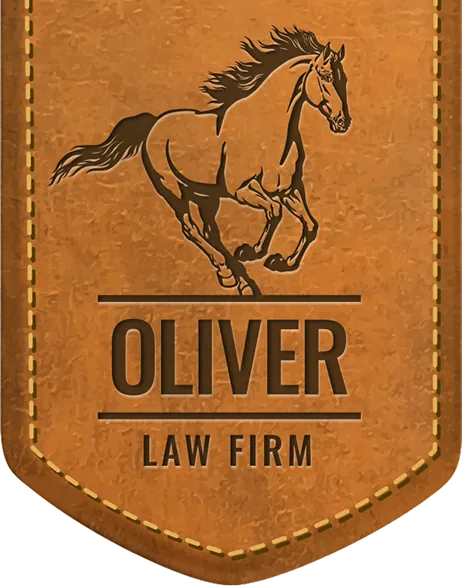Originally published in ATLA Docket, Summer 2009
Focus groups are fun, invaluable, and not too expensive. As a trial attorney, the ability to interact with jurors during and after the case is a unique experience not afforded to us within the confines of our judicial system. In trial, when you are able to interact with the jurors, the final verdict has been rendered … it is too late.
A focus group is pretrial research where information about a case is given to a group of people and that group gives you feedback about the case. Basically, it is practicing for the big trial. Each trial is like a Super Bowl for our clients. Do you think the Pittsburgh Steelers practiced or played other games to prepare for their victory of Super Bowl XLIII over the Arizona Cardinals? We should conduct at least one focus group on every case worthy of trial.
Feedback
The goal of a focus group is to obtain juror feedback. We are looking for opinions, ideas, attitudes, notions, conclusions, questions, curiosities, impressions, and whatever else is on the mind of the jurors. You must give the jurors permission to give you their feedback.
The number one and most important feedback we are looking for is what jurors spend the overwhelming amount of their time doing during deliberations. No matter what type of case you have, the jurors spend a tremendous amount of time talking about one thing in deliberations. It is not the evidence. Not the witness. Not the lawyers. Not lunch. Not guilt or innocence.
JURORS SPEND OVER HALF OF THEIR TIME IN DELIBERATIONS TALKING ABOUT THEIR OWN LIVES.
Jurors always discuss their own life experiences and how what happened to them or what they experienced relates to your case.
Jurors start saying:
“When my aunt was in the hospital …
“Where I work, we have this policy … I think everyone does it that way …
“20 years ago, I witnessed a big truck wreck …
“I was walking through the store and this happened to me …
“I have been taking care of my mom with heart problems for years and …
Why Conduct Focus Groups?
Focus groups flag the important issues. We recommend conducting a pre-discovery focus group, a post-discovery focus group, and a trial preparation focus group. At each state of litigation, as information becomes available, the important issues for the jurors change. Why does it change? Because you have learned through focus groups how to present information that rules out problems and weaknesses for your case and alleviates juror concerns. The first focus group will basically be a questions ceremony. You must answer all of those questions. If you leave some questions unanswered, you have not met your “jurors’ burden of proof.” The second focus group tests the answers you have found to see how jurors digest the information gathered. The third focus group allows you to test themes, arguments, storytelling, and other trial issues that you have learned from prior focus groups and your discovery on the case.
Other than flagging important issues, focus groups:
- Indicate why jurors are likely to decide one way or another;
- Test strategies of each side and their consequences or benefits;
- Provide new presentation techniques;
- Emphasize the weak points of your case;
- Present the questions jurors want answered;
- Shout themes, arguments, and analogies at you, if you will listen;
- Give you key words that resonate with the jury’s mindset;
- Outline which beliefs, life experiences, and backgrounds effect deliberations;
- Offer reaction to personalities or witnesses;
- Critique exhibits;
- Point out what you as the lawyer are missing because you are too close to the case (can’t see the forest for the trees);
- Give you leverage in negotiations, using results, video clips, knowledge, and the simple fact you are prepared;
- Guide for discovery;
- Prepare voir dire issues; and
- Force you to prepare both sides of the case and put on the shoes of the defense attorney.
Simple Step No. 1: Jurors and Location
The first step is to select a location and find mock jurors. Any location will work for a focus group. You can use a hotel, a bank, local school classroom, a church, and the list goes on. Literally, the location is not important. What is important is that the location be as neutral as possible. For example, if you use your own law office, you must take steps to neutralize the focus group. If you do not regularly host focus groups for outside law firms, you might choose a location other than your own law office for your own focus group.
There is considerable discussion among attorneys and trial consultants about venue. If my case is in this county or that county, should I do focus groups in that county? Well, we have done focus groups all over the state (and in other states) and the focus group process does not differ much at all between county to county or region to region. The tort reform propaganda is nationwide. The questions and issues that will be flagged in a focus group will be virtually the same everywhere. Sure, if you have the resources and the time, hold the focus groups in or near the venue of your lawsuit. However, if you conduct the focus group in another venue, your results will likely be very similar.
Locating jurors is more time consuming and difficult than the location of the focus group. We have developed relationships with many churches and staffing agencies in order to always have an ample source of first time mock jurors. We also run ads in the newspapers for jurors. Craigslist is another way you can find jurors . Another interesting source we have used is contacting the local chamber of commerce for contact lists.
Simple Step No. 2: Prepare Your Oral Statements
Once you have a location and jurors, you need substance to test. We suggest you prepare four statements:
- Plaintiff Opening Statement
- Defense Opening Statement
- Plaintiff Evidentiary/Closing Statement
- Defense Evidentiary/Closing Statement
These statements should be 5-10 minutes each in length. For the opening statement, tell the story from each perspective. Most importantly, make the opposition’s story as or more powerful than your side. The attorney must (as literal as possible) place themselves in the shoes of the opposition. A successful focus group ends in a loss, because you truly tested the case.
The evidentiary/closing statements are designed to test 1-3 pieces of evidence from both sides. The plaintiff should test the weakest evidence. The evidence you are most concerned about or have the most questions about should be tested . The opposition should test its strongest evidence. Add more detail during this portion than you did during opening. We want to see the comparisons or changes between the opening and the new evidence and hear the feedback.
ENDNOTES
We video every deliberation of every focus group. Then we watch the deliberation. We have conducted over 50 focus groups. Every deliberation proves this point. Also, in our discussions with national trial consultants, it appears this is a national consensus.
Focus groups will teach you quickly that all of this “law” mess and judicial stuff is “juror noise.” I use the term “juror noise” because jurors apply their own law, they apply their own instructions, and they use their own life experiences to make decisions. They don’t use the instructions, law, or the burden of proof to make decisions.
Oliver, S. Use the “Church Method” to Organize Focus Groups. TRIAL, Journal of the American Association for Justice, December 2008.
https://www.staffmark.com/home. Or https://www.manpower.com/
Local classifieds and forums for 570 cities in 50 countries worldwide—community moderated, and largely free. Found at: https://geo.craigslist.org/iso/us/ar
My good friend Paul Scoptur gave me this idea. Paul is a partner with Aikern & Scoptur in Milwaukee, WI. Paul and Philip Miller of Tennessee are great trial lawyers who now conduct focus groups for outside firms.
If you have a great piece of evidence that you know beyond a shadow of a doubt will be a slam dunk, you should not waste your time or money on that evidence. On more complicated cases or cases with larger monetary value when it is feasible, it is recommended all evidence be tested by mock jurors for feedback.
Click Here for Part 2
a Free Consultation



